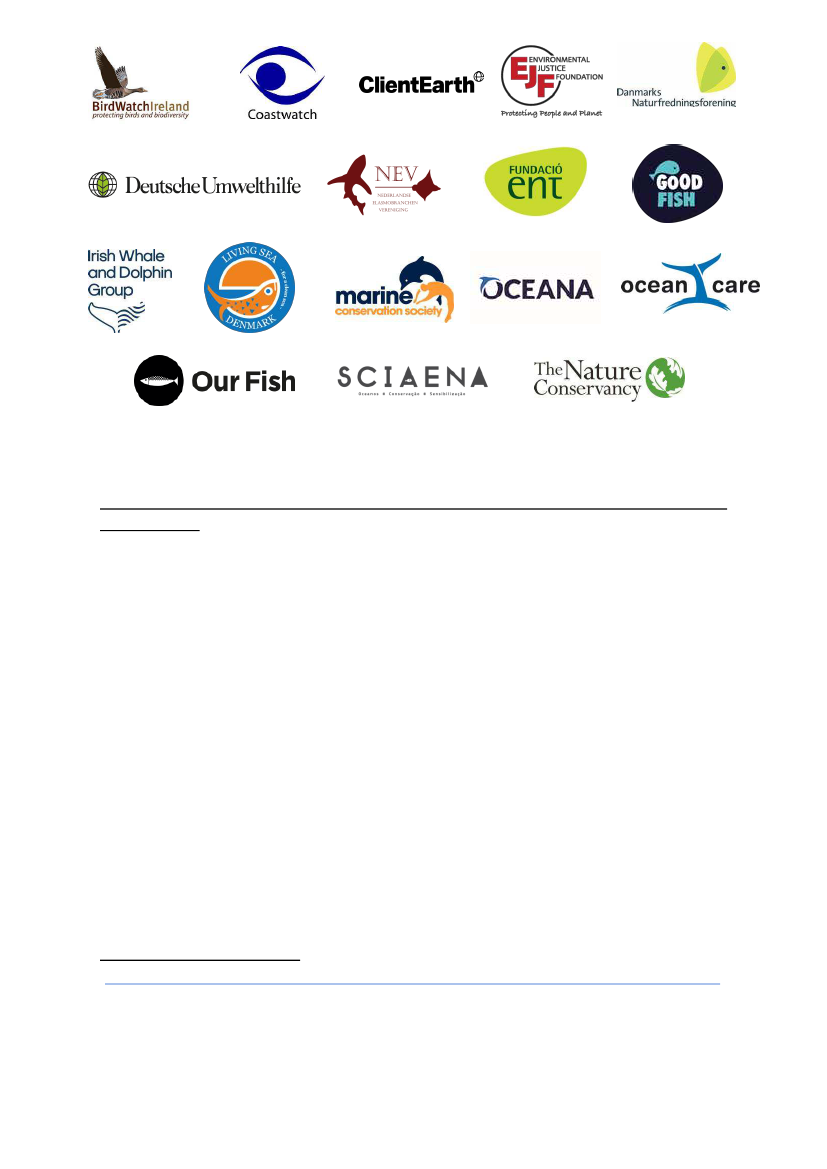
Subject: Urgent Need for Fully Documented Fisheries - AGRIFISH Ministers Meeting - 15/16
th
December 2020
Dear Co
issio er Si ke ičius a d Federal Mi ister Klö k er,
European Union (EU) fishers are currently being granted extra quota despite general non-
o plia e with the Co
o Fishe ies Poli y CFP s la di g o ligatio
1
.
A recent scientific paper
2
confirms that since 2015, fishers have been given additional quota to account for the extra non-
commercial catch that they have to land. However, unaccounted discarding has continued in excess
of the set quotas and Member States are not enforcing accurate documentation to monitor and
contain this behaviour. According to International Council for the Exploration of the Seas (ICES) and
Scientific, Technical and Economic Committee for Fisheries (STECF) scientist Dr Lisa Borges, this
combination of increased quotas, unaccounted discarding and lack of Remote Electronic Monitoring
(REM, including CCTV), is causing unprecedented pressure on our public resource and threatens to
i plode the Total Allo a le Cat hes TACs syste , hi h is the fu da e tal asis of EU fisheries
management
2
.
In 2015, the EU initiated the obligation to land and count all fish caught. To ease the transition to a
system where TACs refer to catches rather than landings only, the majority of EU TACs were increased
to account for the portion of catch that was previously discarded and would now be landed
3
. Dr Lisa
Borges’
paper
2
now shows an average annual upward adjustment of 36% in TACs in 2015, increasing
https://ec.europa.eu/fisheries/press/fisheries-north-sea-and-north-western-waters-landing-obligation-not-respected_en
Lisa Borges (2020), The unintended impact of the European discard ban, ICES Journal of Marine Science, IN PRESS, DOI:
10.1093/icesjms/fsaa200
3
ClientEarth (2020). Setting Total Allowable Catches (TACs) in the context of the Landing Obligation.
https://www.clientearth.org/latest/documents/setting-total-allowable-catches-tacs-in-the-context-of-the-landing-
obligation/
2
1